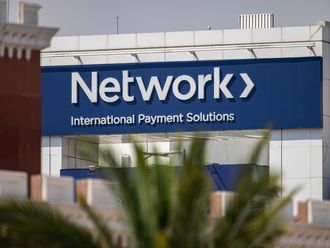Abu Dhabi: Statistics released by the UAE Central Bank on Thursday showed that banks held deposits of Dh1.053 trillion at the end of October against Dh1.013 trillion in September, the highest deposit level in three years.
This is also the first time in almost two years that deposits exceeded loans, signalling that credit continues to be tight while banks go all out to attract and retain deposits.
Deposits stood at Dh982.9 billion in October 2009.
Loans and advances provided by banks dropped to Dh1.037 trillion in October compared to Dh1.038 trillion in September.
The gap between loans and deposits decreased, accounting for Dh14.1 billion in October compared to Dh25.1 billion in September. Personal loans increased in October to Dh215.1 billion against Dh214.9 billion in September.
Banks in the UAE recorded assets of Dh1.623 trillion, compared to 1.584 trillion in September, according to the central bank. Assets stood at Dh1.536 trillion in October 2009.
Bad debt provisions rose to Dh39.6 billion in October compared to Dh37.8 billion in September and Dh29 billion in October 2009. According to the statistics, the financial sector also saw an improvement in liquidity. The total value of deposit certificates reach Dh81 billion in October against almost Dh73 billion in September, a growth of 0.9 per cent and an increase compared to Dh74.6 billion reported in October 2009.
Investments rose to Dh123 billion in October compared to the Dh121.9 billion recorded at the end of September, and an increase from the Dh119.5 billion recorded in October 2009.
Allocations increased to Dh14.5 billion in comparison to Dh14.2 billion in September and Dh9.3 billion in October 2009.
Data: Money supply grows
Money supply (M3) in the UAE grew 5.1 per cent year-on-year at the end of October, the fastest rate this year, after a 2.0 per cent rise in the previous month, data from the UAE Central Bank revealed on Thursday.
Bank provisions for bad loans rose to Dh39.6 billion last month, the highest level this year, up 4.8 per cent from September and 36.6 per cent from October 2009, the data showed.
— Reuters










